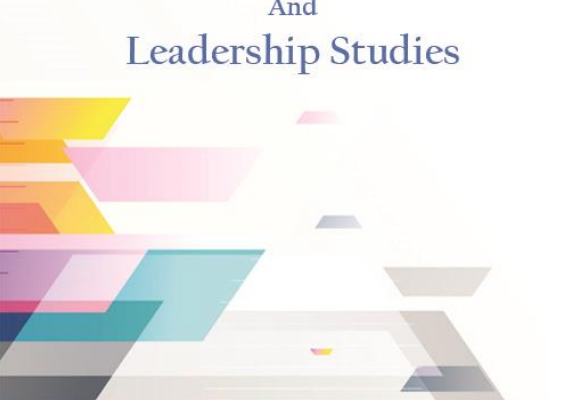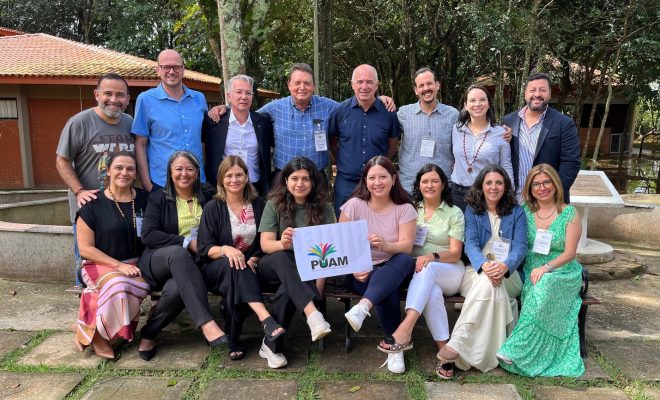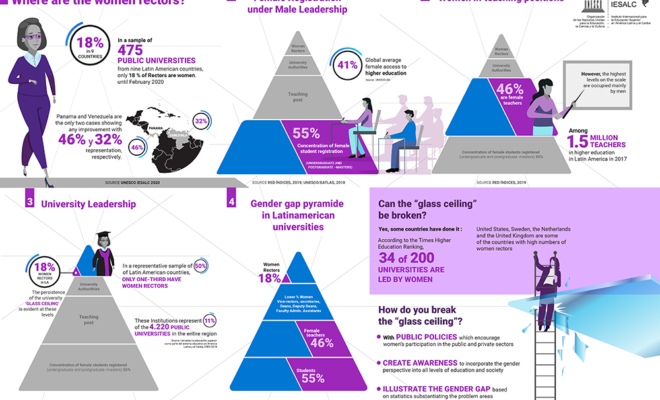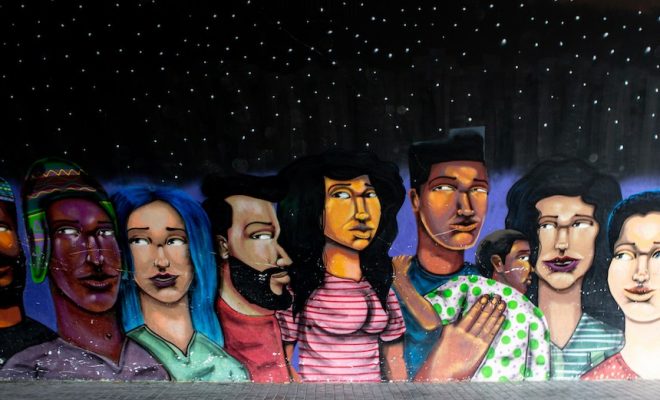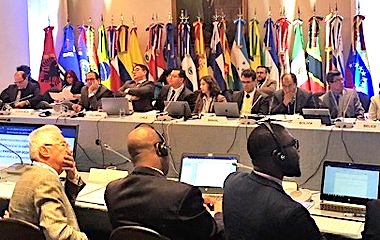Youth-informed policy papers on global goals released

A series of youth informed policy papers was recently launched presenting discussions and proposals developed through youth consultations led by UNESCO IESALC to contribute to the 2024 United Nations Summit of the Future. Held on 3 June, June 17, and 15 July 2024, these consultations gathered youth from all five UNESCO regions–Africa, Asia and the Pacific, Arab States, Europe and North America, and Latin America and the Caribbean–ensuring a diverse and inclusive process. They were supported by broad participation from young people in the BIBO (Better Innovation, Better Outcome) Network, which is part of UNESCO IESALC’s Youth Strategy, aimed at engaging young stakeholders in shaping inclusive, equitable, and quality higher education for sustainable development.
Launched in 2023 with pilot activities, the 2024 BIBO Network cohort includes 50 members from 23 countries, offering opportunities such as advocating for the SDGs, participating in events, workshops and podcasts, engaging in peer-to-peer learning, attending high-level events, and training in applied policy and project management skills. The network promotes collaboration, networking, visibility, and co-creation, with outcomes—such as this policy paper series— based on collective engagement by its members and other partners.
- Youth-led innovations for SDG 1: shaping inclusive solutions to end poverty: This paper highlights the role of youth in achieving SDG 1 (No Poverty) by harnessing their energy, innovation, and leadership for transformative action. Empowering young people to drive efforts toward a sustainable and resilient future aligns with the Summit’s goal of shaping a more inclusive and forward-looking global agenda.
- Youth-led solutions for inclusive and resilient food systems: paving the path to SDG 2 highlights the role of youth in achieving SDG 2 (Zero Hunger) by harnessing their energy, innovation, and leadership for transformative action. Empowering young people to drive efforts toward a sustainable and resilient future aligns with the Summit’s goal of shaping a more inclusive and forward-looking global agenda.
- Youth-led innovations for climate justice: connecting local and global solutions, a paper on SDG 13 (Climate Action), underscores the need for urgent and decisive action on climate change, as the planet’s warming accelerates, triggering more frequent and devastating climate disasters. To tackle this crisis, it is vital to replace voluntary commitments under the Paris Agreement with binding obligations that enforce accountability and limit global temperature rises. Young people across different regions are already leading advocacy and innovation in climate solutions, but they also need to be meaningfully included in high-level decision-making to ensure equitable, effective climate action for present and future generations, which aligns with the Summit of the Future’s goal of fostering a more inclusive and sustainable governance mechanisms.
- Harnessing youth leadership to drive SDG 16: strengthening peace, justice, and institutions for resilient societies emphasizes the importance of youth in achieving SDG 16 (peace, justice, and strong institutions), by including them in decision-making through youth advisory councils and formal mechanisms for intergenerational dialogue. The document recommends empowering youth to lead in strengthening democratic institutions, promoting transparency, and fighting corruption. Key areas include providing legal education, creating youth-friendly justice systems, and ensuring digital literacy and technology access. It also highlights the need for youth-led peacebuilding, ensuring gender equality by providing support for young women in peace and security roles. Governments and donors are urged to promote youth-led initiatives for SDG 16, recognizing that their engagement is essential for a peaceful, just, and sustainable future.
- Advancing SDG 17: youth-led partnerships and innovations for sustainable development underscores the role of SDG 17 in advancing the 2030 Agenda through cross-sector partnerships and collaborations, integrating the contributions of young people to drive innovation and progress. Strong, inclusive partnerships, supported by political and financial backing for initiatives led by the younger generations, are essential for tackling global challenges and achieving sustainable development. Additionally, it stresses that effective technology transfer, aligned with local development goals, and policy incentives are critical for accelerating progress towards all SDGs.
Together, these papers present a comprehensive youth-led vision to inform and support the outcomes of the 2024 Summit of the Future, advancing progress across the Sustainable Development Goals.
This series counted on the support of the following team: Lead for Youth-Led Policy White Papers: Doris Mwikali, BIBO Academy Policy Consultant, UNESCO IESALC; supporters and editors: Giulia Ribeiro Barão, Project Officer, Partnership and UN Liaison Unit, UNESCO IESALC; Bosen Lily Liu, Head of Partnership and UN Liaison Unit, UNESCO IESALC. Also, it counted with the support of the following collaborators: Adriana Miranda, Anna Weinrich, Binte Sohail, Damilare Oyedele, Diego Mendoza, Doris Mwikali, Dunja Trifunovic, Emmanuel Ganse, Greta Kohan, James Odhiambo, Maimoona Sohail, Michael Nabieu, Nancy Chacón, Olumide Ojelabi, Rafat, Samapika Sahu, Samuel Mue, Sara Gawhary, Saramma Chandy – outstanding young people affiliated to BIBO Network and other youth organizations.
Related events
RELATED ITEMS
